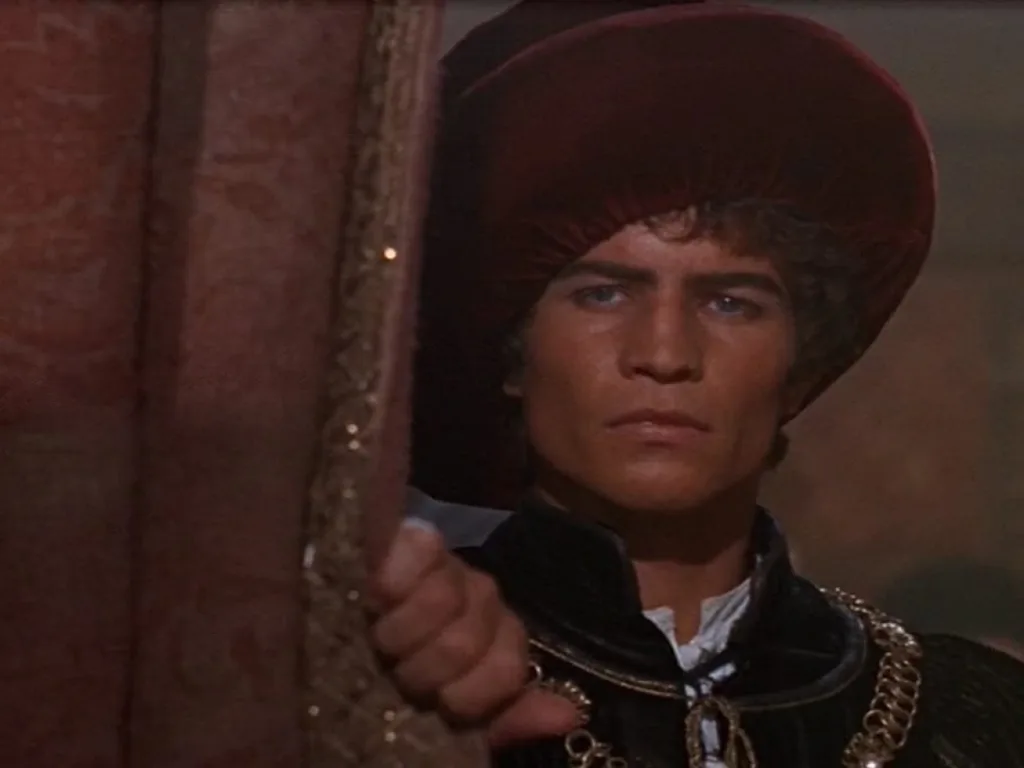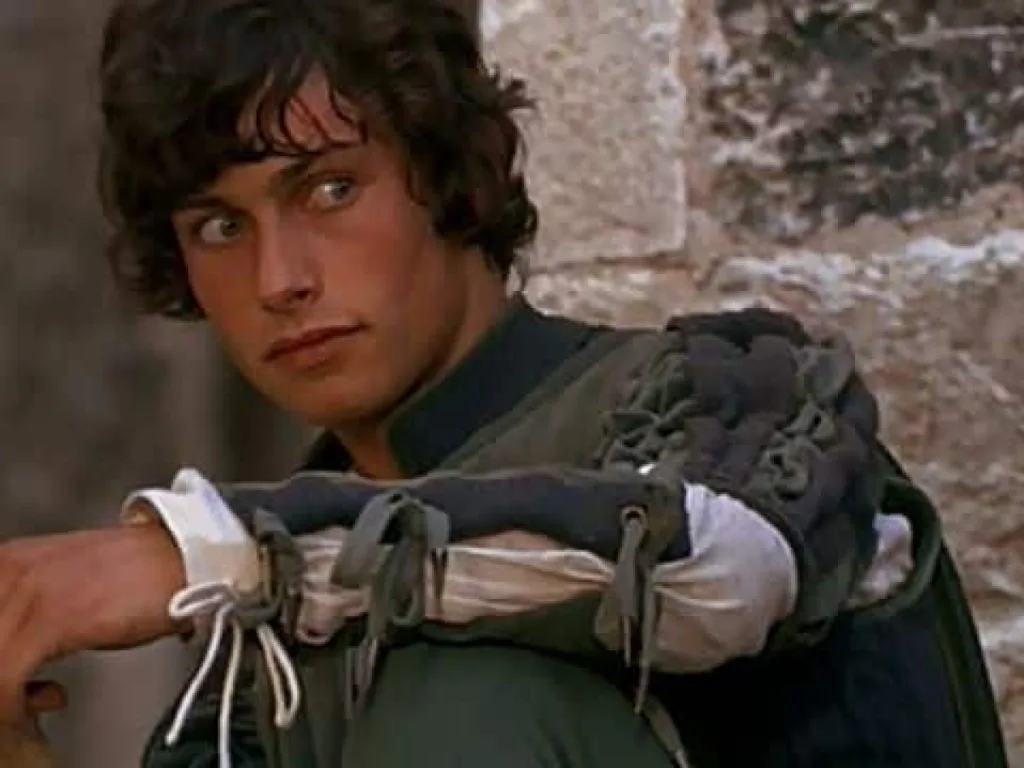In the tragic tale of Romeo and Juliet, the death of Tybalt is a pivotal moment that sets in motion a chain of events leading to the ultimate demise of the two star-crossed lovers. However, there seems to be some confusion about who exactly is responsible for the death of Tybalt. Let us delve deeper into the story to shed light on this matter.
Tybalt, a hot-headed Capulet, is known for his quick temper and fierce loyalty to his family. He is engaged in a longstanding feud with Romeo and his Montague kin. The fateful encounter between Tybalt and Romeo occurs in Act 3, Scene 1, in the streets of Verona.
The scene begins with the tension already brewing between the two households. Mercutio, Romeo’s close friend, engages in a verbal battle with Tybalt, trading insults and provocations. Unable to contain his anger, Tybalt challenges Romeo to a duel, seeking to avenge the perceived disrespect shown by the Montagues.
In an attempt to prevent bloodshed, Romeo intervenes and steps between Tybalt and Mercutio. However, tragedy strikes as Tybalt, driven by rage, stabs Mercutio under Romeo’s arm. Mercutio’s grievous wound proves fatal, and with his dying breath, he curses both the Montagues and the Capulets, exclaiming, “A plague o’ both your houses!”
Enveloped in grief and consumed by anger over the loss of his friend, Romeo’s emotions get the better of him. Blinded by his desire for revenge, he sets his sights on Tybalt and, in a fit of rage, kills him. The act is impulsive and driven by the heat of the moment, rather than a calculated decision.
Upon discovering the fatal result of his actions, Romeo is overcome with remorse and realizes the gravity of what he has done. He laments the consequences of his hasty actions, exclaiming, “O, I am fortune’s fool!” Romeo’s impetuous act not only deepens the divide between the two feuding houses but also seals his own tragic fate.
It is crucial to note that while Romeo is the one who physically kills Tybalt, the death of Tybalt is a result of the ongoing conflict between the Montagues and the Capulets. The feud between the two families creates an atmosphere of hostility and animosity, leading to the tragic events that unfold.
In the aftermath of Tybalt’s death, the Prince of Verona, who serves as the voice of authority and justice, arrives on the scene. He utters the words, “His fault concludes but what the law should end, the life of Tybalt,” implying that Tybalt’s death is a consequence of his own actions and that Romeo’s punishment should be death as well.
Ultimately, the question of who kills Tybalt boils down to a complex web of circumstances and choices. While Romeo is the one who delivers the final blow, the responsibility for Tybalt’s death is shared among the feuding families and the tragic circumstances that surround them.
Who Is To Blame For The Death Of Tybalt?
The death of Tybalt in Shakespeare’s play “Romeo and Juliet” is a result of a series of unfortunate events and the actions of various characters. While it is difficult to assign blame to a single individual, the following factors contribute to Tybalt’s demise:
1. Romeo’s impulsive nature: Romeo, fueled by anger and grief over the death of his friend Mercutio, seeks revenge against Tybalt. In a moment of heated passion, Romeo engages in a duel with Tybalt, ultimately leading to Tybalt’s death. Romeo’s impulsive behavior and failure to control his emotions play a significant role in Tybalt’s demise.
2. Tybalt’s aggressive nature: Tybalt is known for his hot-headedness and quick temper. His aggressive behavior and constant desire for confrontation escalate the tensions between the Capulets and Montagues. Tybalt’s provocative actions, including starting the fight with Mercutio, contribute to the tragic chain of events that lead to his own death.
3. Mercutio’s involvement: Mercutio, Romeo’s loyal friend, willingly involves himself in the feud between the Capulets and Montagues. His confrontational attitude and decision to fight Tybalt ultimately lead to his own death. Mercutio’s death sets off a chain of events that culminate in Romeo seeking revenge against Tybalt.
4. The ongoing feud between the families: The deep-rooted hatred and animosity between the Capulets and Montagues play a significant role in Tybalt’s death. The long-standing feud creates an environment of tension and violence, making any encounter between the two families potentially deadly. The feud acts as a catalyst for the tragic events that unfold in the play.
It is important to note that assigning blame solely to one character would be oversimplifying the complex circumstances that lead to Tybalt’s death. The combination of Romeo’s impulsive nature, Tybalt’s aggressive behavior, Mercutio’s involvement, and the ongoing family feud all contribute to the tragic outcome.

How Does Tybalt Get Killed?
In the tragic play “Romeo and Juliet” by William Shakespeare, Tybalt meets his demise during a heated confrontation with Romeo following the death of Mercutio. The sequence of events leading to Tybalt’s death unfolds as follows:
1. Tybalt and Mercutio engage in a fierce verbal exchange, fueled by their long-standing rivalry and the tensions between the Capulet and Montague families.
2. The argument escalates, and Tybalt draws his sword, ready to engage in a physical fight with Mercutio.
3. Romeo, desperate to prevent further conflict and maintain peace, steps between the two adversaries, pleading for them to cease their fighting.
4. In the midst of Romeo’s intervention, Tybalt takes advantage of the opening and stabs Mercutio under Romeo’s arm. Mercutio’s wound proves to be fatal, and he tragically succumbs to his injuries.
5. Overwhelmed by grief and rage at the loss of his dear friend, Romeo’s emotions cloud his judgment. Blinded by anger, he impulsively attacks Tybalt in retaliation for Mercutio’s death.
6. In the ensuing confrontation, Romeo manages to overpower Tybalt, ultimately killing him.
It is important to note that Tybalt’s death occurs as a result of the escalating conflict between the feuding families and the tragic consequences of their ongoing animosity.
Why Did Romeo Killed Tybalt?
Romeo killed Tybalt in the aftermath of a fight that broke out in Verona. The conflict escalated when Tybalt, a member of the Capulet family, killed Romeo’s close friend Mercutio. Romeo had initially tried to prevent the fight from happening as he was newly married to Juliet, a member of the Capulet family, and did not wish to engage in violence with his new relatives. However, after witnessing the death of Mercutio, Romeo’s emotions took over and he sought revenge. Romeo’s anger and grief led him to confront Tybalt and ultimately kill him in a fit of rage.
The main reasons behind Romeo’s decision to kill Tybalt can be summarized as follows:
1. Loyalty to Mercutio: Mercutio was Romeo’s closest friend and confidant. Witnessing his friend’s death triggered a strong emotional response in Romeo, causing him to prioritize avenging Mercutio’s death.
2. Honor and Reputation: In the society of Verona, maintaining honor and reputation were of utmost importance. By killing Mercutio, Tybalt had not only attacked Romeo’s friend but also challenged his reputation. Romeo felt compelled to defend his honor by taking revenge.
3. Emotional Turmoil: Romeo was already dealing with a whirlwind of emotions due to his secret marriage to Juliet, which had caused tension between the Montague and Capulet families. Mercutio’s death added to his emotional turmoil, clouding his judgment and leading him to act impulsively.
4. Desire for Justice: Romeo believed that justice needed to be served for Mercutio’s death. He saw killing Tybalt as the only way to balance the scales and ensure that the person responsible for his friend’s demise faced the consequences.
5. The Feud Between the Families: The longstanding feud between the Montagues and Capulets had bred a deep sense of animosity and enmity. Romeo’s actions can also be seen as a reflection of the ongoing conflict between the two families, where each act of violence is met with retaliation.
Romeo’s decision to kill Tybalt was driven by a combination of grief, anger, loyalty, a desire for justice, and the complex dynamics of the feuding families in Verona. It was a tragic consequence of the events unfolding in Shakespeare’s play, “Romeo and Juliet.”
Who Killed Benvolio?
Benvolio is not killed in the play Romeo and Juliet. While there are several deaths throughout the play, Benvolio does not meet his demise. The death of Mercutio, however, is a pivotal moment in the story. Mercutio is killed by Tybalt during a heated confrontation between the Capulets and Montagues. This event sets off a chain of events that ultimately leads to the tragic conclusion of the play. It is important to note that Benvolio is a friend and cousin to Romeo, and he plays a supportive role throughout the story, but he does not meet his death in the play.

Conclusion
In the tragic play “Romeo and Juliet” by William Shakespeare, the character Tybalt meets his untimely demise at the hands of Romeo. Tybalt’s death is a pivotal moment in the play, as it sets in motion a chain of events that leads to the tragic end of the young lovers.
After the death of his dear friend Mercutio, Romeo is overwhelmed by grief and filled with a burning desire for revenge. Blinded by rage and consumed by his emotions, Romeo confronts Tybalt, seeking to avenge Mercutio’s death. In a moment of heated confrontation, Romeo ultimately strikes a fatal blow, ending Tybalt’s life.
The killing of Tybalt by Romeo serves as a turning point in the play, as it propels the narrative towards its tragic conclusion. This act of violence not only deepens the feud between the Capulet and Montague families but also leads to Romeo’s banishment from Verona. This, in turn, sets the stage for the tragic miscommunication and unfortunate events that ultimately result in the deaths of Romeo and Juliet.
Throughout the play, Shakespeare skillfully portrays the consequences of unchecked rage and the destructive nature of violence. By having Romeo kill Tybalt, the playwright emphasizes the tragic consequences of impulsive actions and the devastating effects they can have on individuals and society as a whole.
It is Romeo who kills Tybalt in “Romeo and Juliet.” Through this act, Shakespeare highlights the destructive power of unchecked emotions and the devastating consequences they can have on the lives of individuals. The death of Tybalt serves as a catalyst for the tragic events that unfold in the play, ultimately leading to the heartbreaking demise of the young star-crossed lovers.
